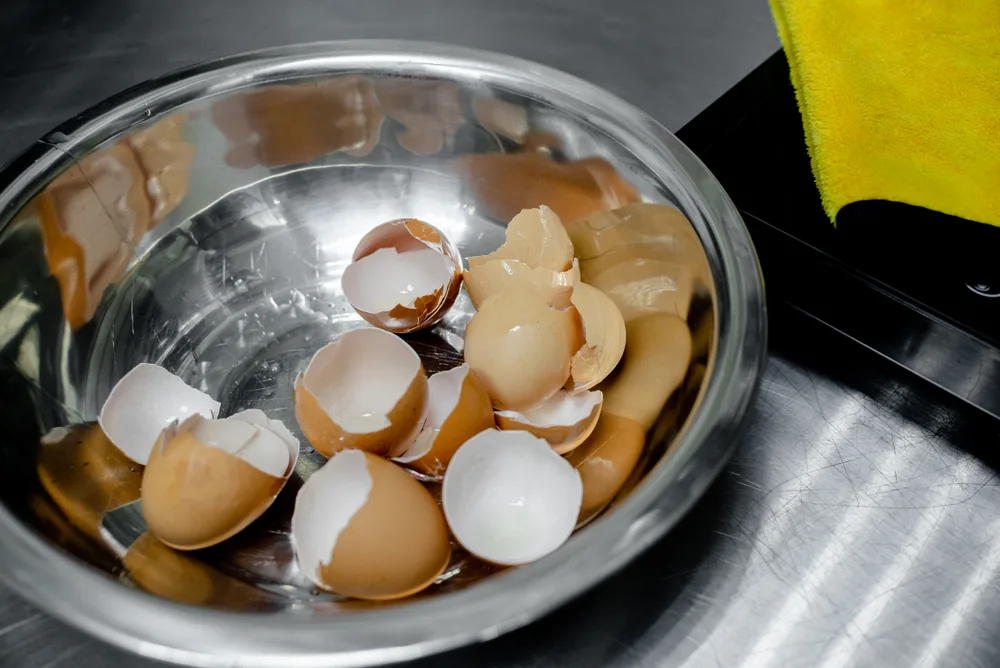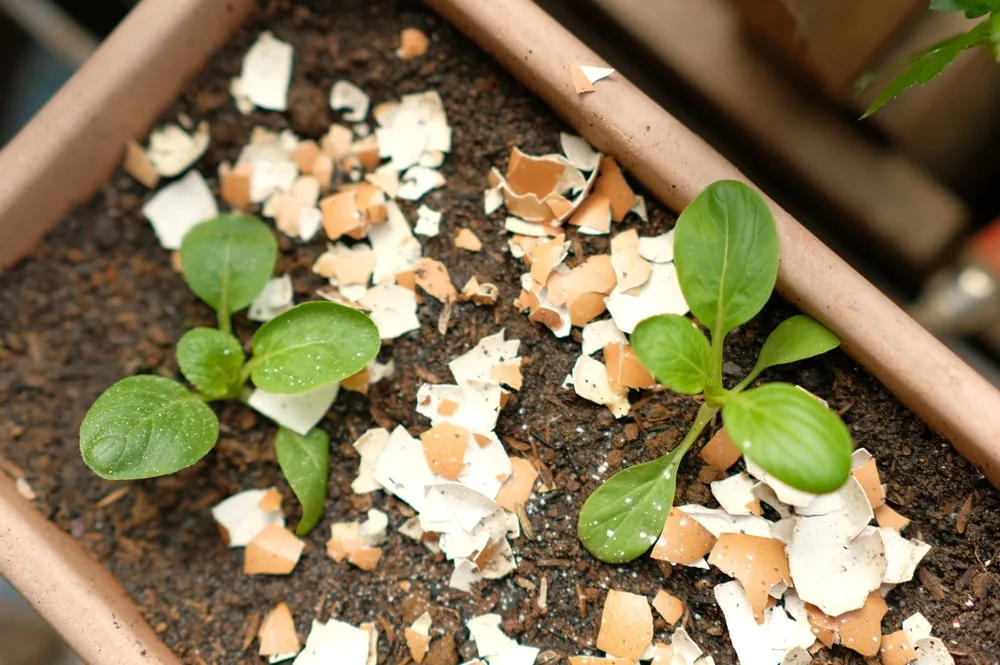Don’t discard the eggshells the next time you prepare breakfast or bake. They can serve as a useful organic addition to your garden.
Crushed eggshells are rich in calcium, providing valuable nutrients to the soil and benefiting plants greatly.
With Easter approaching and the sun shining, it’s a perfect opportunity to utilize this traditional resource in gardening.
Plant pots for germination

Creating eggshell planters for seedlings is a cost-effective and sustainable method to begin gardening.
Eggshells, abundant in calcium, aid plant growth. Once ready for outdoor placement, bury the entire shell in the ground to enrich soil and plants.
Due to limited space in eggshell planters, it’s advisable to cultivate smaller plants like herbs and flowers.
Instructions:
- Collect eggshells from breakfast, halve them, and ensure thorough rinsing.
- Using a small needle, create drainage holes at the base of each eggshell.
- Fill eggshells with seed compost using a teaspoon, allowing ample room for root growth.
- Add seeds to the soil, lightly covering them. Herbs such as basil, parsley, cress, and chives are excellent choices.
- Place eggshell planters in an egg carton on your windowsill. Mist with water every two to three days.
- Once seedlings reach a few inches in height, transplant them into your garden or container, burying the eggshell entirely. The shell will decompose, nourishing the plants.
Fertilizer

Chicken eggshells contain 96% calcium carbonate, essential for plant growth and soil pH regulation.
Eggshells provide an ideal supplement for fast-growing plants, enriching outdoor flowers, vegetables, and fruit trees.
During winter, crush eggshells and sprinkle over containers or garden borders for spring planting. Alternatively, add crumbled shells directly into planting holes.
Eggshells benefit various vegetables, flowers, and plants, including tomatoes, peppers, roses, hydrangeas, ferns, and ivy.
Finely crush eggshells and add them to water to create a calcium solution. The plant’s root system can absorb this soluble calcium.
Pest Control
Eggshells serve as organic pest deterrents, particularly against slugs, snails, and crawling pests. Scatter crumbled shells around plants to deter these nuisances.
For brassicas, eggshells are believed to repel cabbage white butterflies, mistaking the white sheen for competitors.
Spread eggshells to deter cats from garden beds, as they dislike walking on sharp or noisy surfaces.
Composting
Eggshells are valuable additions to compost heaps, enriching them with essential nutrients like calcium, minerals, and proteins.
Wash eggshells before composting to prevent attracting animals. Crush them into a powder to facilitate decomposition and aid plant growth.
Utilizing eggshells in the garden is a cost-effective way to repurpose waste and contribute to plant health.
